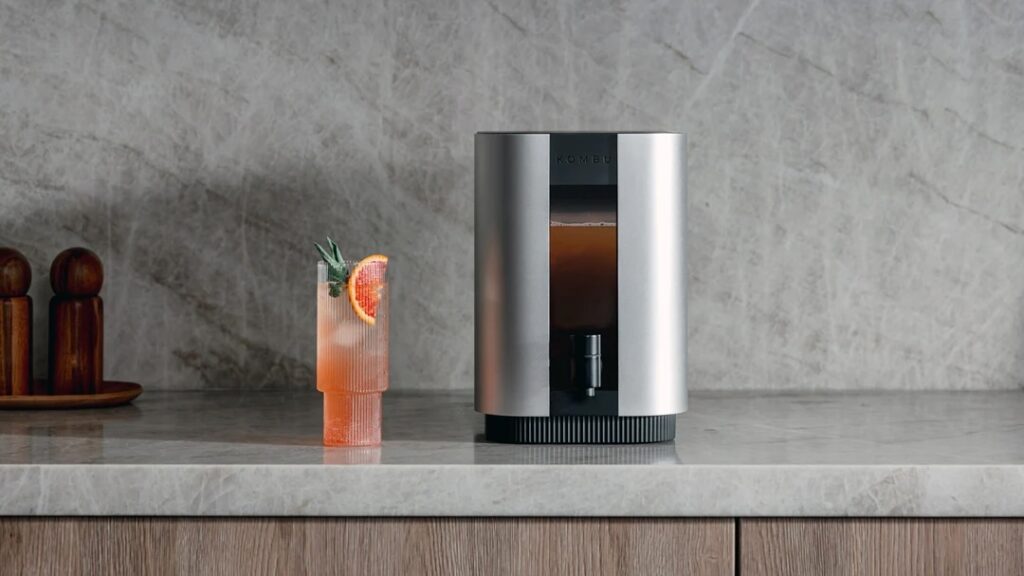Kombucha, a fermented tea that has been around for thousands of years and was once considered a niche health drink, is currently experiencing a surge in popularity as more consumers look for gut-friendly beverages. However, this fizzy drink isn’t exactly cheap, and home brewing can be messy, overly complicated, and time-consuming. Additionally, the supplies needed take up a fair amount of space, making home brewing impractical for many.
At CES 2025, Kombu, a San Francisco-based hardware startup, showcased The Fermenstation, an at-home kombucha brewer that aims to combine all the essential steps of the DIY brewing process while alleviating the typical setup challenges.
Kombu was created by husband and wife team Michael Churchill (CEO) and Natalia Amijo, who studied together at the Art Center College of Design. Churchill has experience working with automotive OEMs and an electric vehicle startup, while Amijo’s background includes virtual reality and a startup in the mobility sector.
“I had been brewing kombucha for years, but one day, Natalia pointed out that my setup, essentially a collection of cobbled-together parts, was far from aesthetically pleasing. It was a mess,” Churchill told TechCrunch. “Surely, there had to be a kombucha brewing appliance that combined functionality with great design. After searching the market and finding nothing, we decided to create our own solution.”
Brewing kombucha at home traditionally involves multiple steps, including boiling tea, cooling it, adding sugar, waiting for fermentation, and regularly testing the flavor. It also requires glass bottles covered with cloths, making the process less aesthetically pleasing and carries risks, as open containers cause unwanted bacteria or mold. The Fermenstation aims to streamline this process, so users can create kombucha with minimal effort.

One of the main challenges of traditional kombucha brewing is achieving consistent results. Variations in temperature, humidity, and the brewing environment can impact fermentation times, flavor, and carbonation. The Fermenstation addresses this issue by utilizing a low heating, temperature-controlled system to maintain a stable temperature (between 75°F and 85°F), allowing for more predictable results.
Additionally, Kombu believes its sleek device, resembling a high-end water dispenser, is more visually appealing and occupies less space than numerous jars scattered across your kitchen counter. It also creates a sealed, sterile environment, significantly reducing the chances of harmful bacteria contaminating your brew.
The device also includes a companion app, enabling users to control it remotely, set timers, monitor the temperature, and receive notifications.

In August 2024, Kombu launched its patented kombucha brewer through a Kickstarter campaign, which, at the time of this writing, has attracted 305 backers and has exceeded its goal of $25,000, reaching nearly $105,000. It’s currently available for pre-order and is set to begin shipping between April and June to customers in the U.S. and Canada.
Special launch pricing is $360, and the suggested retail price is $500. While the upfront cost of the device might seem higher than purchasing jars and basic brewing supplies, the system can pay for itself over time since you’ll only need to buy tea, sugar, and occasionally a new SCOBY, which are far cheaper than continually buying store-bought kombucha (often costs $3-$5 per bottle) or replacing damaged brewing supplies.
Kombu plans to grow its business by adding more fermented foods. It will also look into offering more accessories and subscription services for teas and flavor concentrates.
“Our ultimate goal is to establish Kombu as a household name in modern fermentation and gut health, ensuring that the benefits of fermented foods are within everyone’s reach,” Churchill said.


